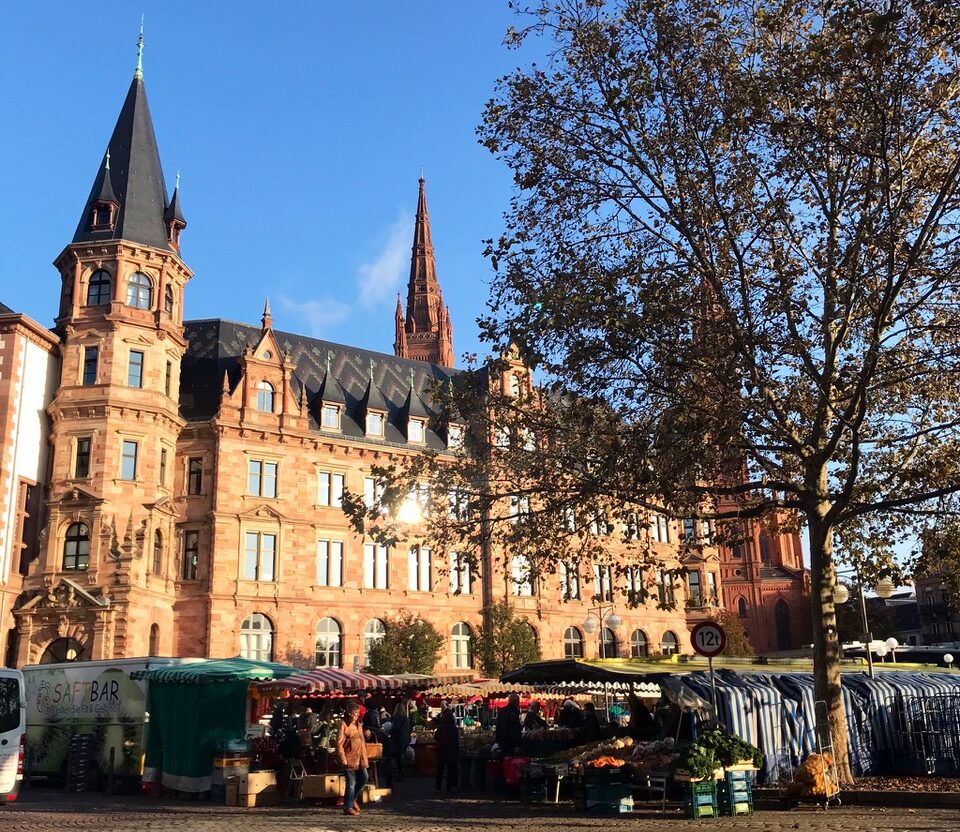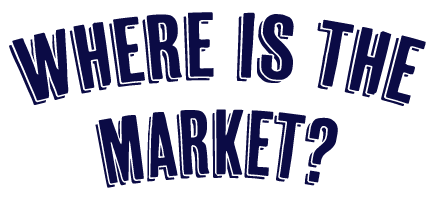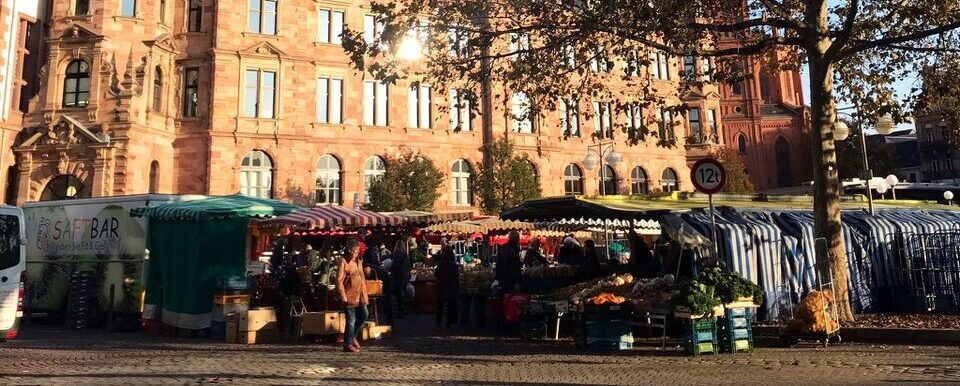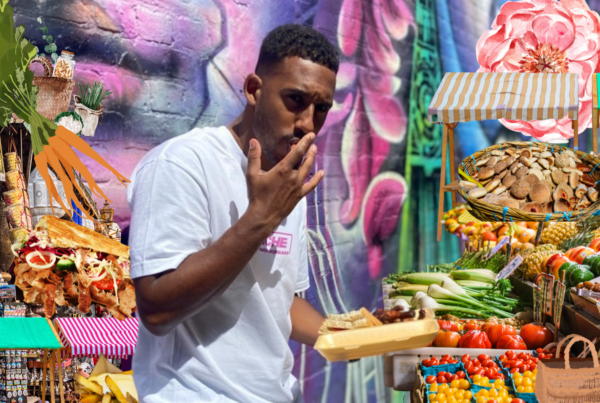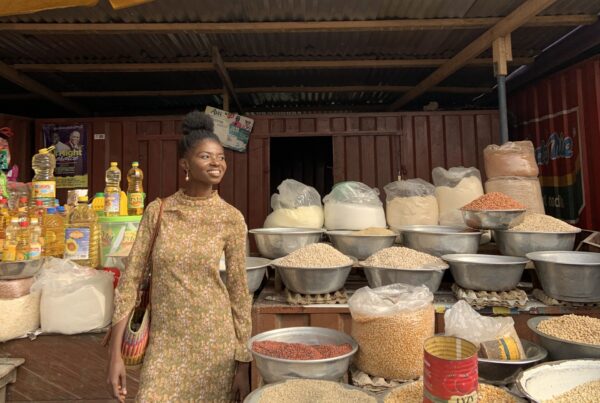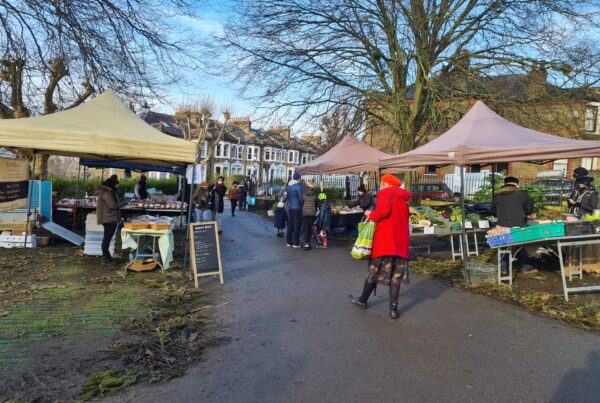We talked to food and travel writer Christie Dietz about the best of that the Wiesbaden market has to offer.
Hi Christie, tell us a little bit about yourself!
I’m originally from London, but moved with my German husband to the beautiful spa town of Wiesbaden, Germany in 2010. In the summer of 2020, we moved out of the city to a village in the Rheinhessen wine region, on the other side of the River Rhine.
I’m a freelance food and travel writer focusing mainly on Germany, though I’m happy to travel anywhere on assignment as long as I can get there by train. As a travel writer, things are obviously a bit quiet at the moment, so I’m mainly working on various projects as a content writer and consultant for German travel/tourism/restaurant businesses. The travel writing work did pick up for a bit towards the end of last year, and in September I went to Berlin and SalzburgerLand for Food & Travel magazine. I also wrote a couple of pieces for the Spring 2021 issue of National Geographic Traveller Food. Fingers crossed I’ll be able to get back to travelling for work again later in the year.
What is your favorite market and what is your connection to it?
The twice-weekly market in Wiesbaden, where I did my food shop once or twice a week for the best part of ten years, will always have a special place in my heart. I could walk to it from both flats my husband and I lived in whilst we were there, and knew it like the back of my hand. I built up good relationships with some of the stallholders there, and I miss doing my weekly food shop there horribly.
Why do you think the market in Wiesbaden is special and worth a visit?
Wiesbaden is a beautiful city that was largely built at the turn of the 19th century and was barely damaged during the war. The market is located on a cobbled square in the centre of town, surrounded by historic buildings that include a 19th century neo-Gothic church and the Renaissance Revival-style city hall. It’s a gorgeous spot and the culinary offerings are excellent – there are around 100 stands, the majority of which sell local and regional food and drink.
What are your top 3 favourite things you can buy at the market in Wiesbaden?
This is really hard! The product I used to probably get most excited about treating myself to from time to time was the Bunte Bentheimer raw cured/air-dried pork belly from organic pig farm Althaus Zell in the Mosel (which is admittedly not particularly local!). In winter, I would chop a thick slice of it into lardons and add it to Savoy cabbage and parmesan rind soup. In spring/early summer, the Annabelle potatoes from Gärtnerei Schäfer are delicious – last year, I think they were honestly the best potatoes I’ve ever eaten. And the strawberries from Mohr’s during the summer months are like no other strawberries on earth. In high season, we’d easily get through a good 2kg (~4.5 lbs) a week.
What is your favourite stall/small business at the Wiesbaden market?
There were three butcher stands I’d regularly buy cold cuts, sausages or meat from, but Mr Löffler had an excellent sense of humour and was endlessly patient with my ordering all sorts of peculiar British cuts that aren’t standard here in Germany. Over the last few years, we’d also have regular chats about Brexit and the EU: he was incredibly kind to me the first time I saw him after Brexit happened, and I promptly burst into tears. When I told him we were moving away last summer, he jokingly asked which day would be my last so he could organise a champagne send off and a brass band. I nearly dissolved into tears at that, too!
Why do you think it’s important for people to visit markets in general?
Aside from the importance of supporting local farmers and small businesses, it’s an excellent way to learn about where your food comes from and make educated choices about what you buy. By chatting to stallholders who grow their own produce, you can learn what’s in season and find out how and where they grow their fruit – and get tips for what to do with unfamiliar veg. At a bakery stand, you can find out exactly what’s in the loaf of bread you’re buying for your lunch, and be confident that it was baked from scratch that day. The factory farming industry in Germany is horrific, so talking to your butcher at the market is a really good way to make sure you know where your meat comes from.
I also think it’s really important to learn how to eat seasonally – which sounds a bit idiotic, but after a lifetime of shopping at supermarkets and having everything from strawberries to pumpkins available to me 365 days a year, I really had to do from scratch. It’s such a pleasure to watch the produce at the market change throughout the year: the excitement is palpable when white asparagus comes into season, and it feels like the greatest luxury to be surrounded by mountains of local apricots and plums when late summer comes around. Fruit and veg tastes so very much better for not having been shipped half-ripe across the Atlantic.
Market ambassador: Christie Dietz, freelance food and travel writer and the founder of A Sausage Has Two (Instagram: @asausagehastwo)
Christie also wrote about what it was like going to Wiesbaden farmers market during Germany’s first 2020 lockdown on her blog, A Sausage Has Two.
Market details
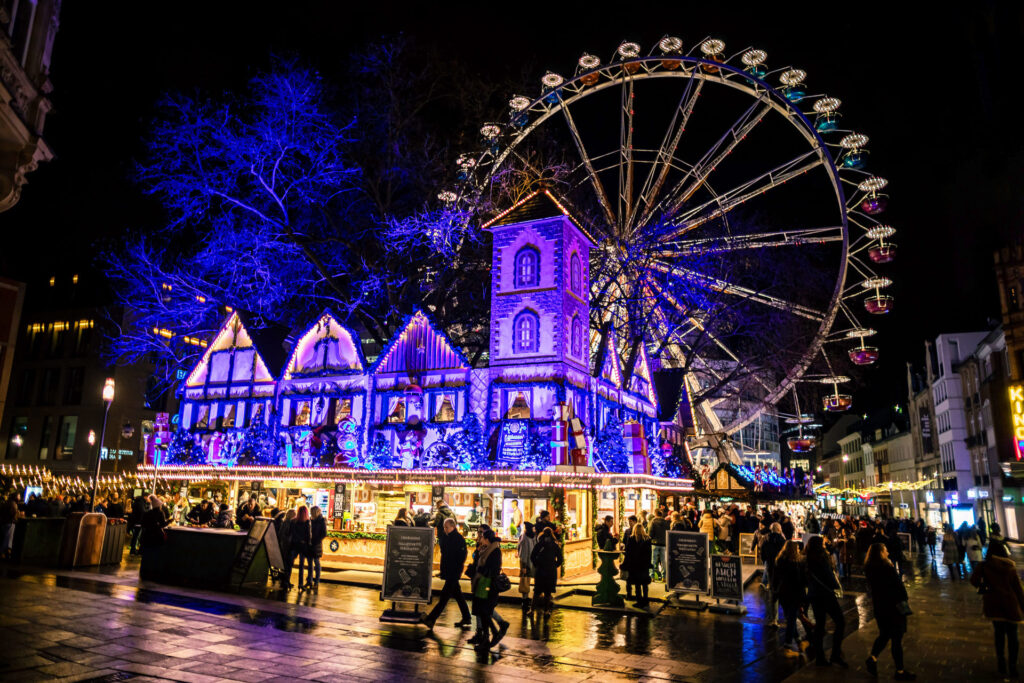
Wiesbaden Shooting Stars Market, Germany
